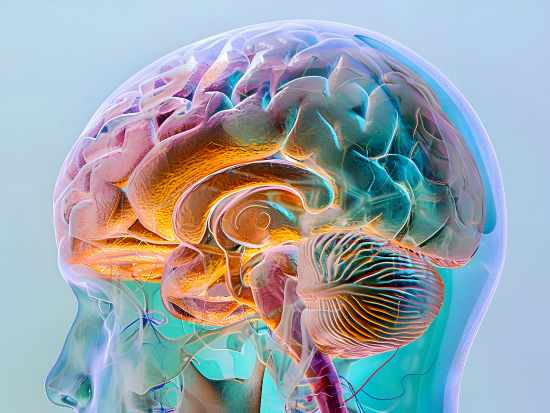 The University of Alabama at Birmingham Center for Neuroengineering and Brain-Computer Interfaces (CNBCI) has been selected as a University-Wide Interdisciplinary Research Center (UWIRC) for fiscal year 2025.
The University of Alabama at Birmingham Center for Neuroengineering and Brain-Computer Interfaces (CNBCI) has been selected as a University-Wide Interdisciplinary Research Center (UWIRC) for fiscal year 2025.
This designation marks a significant milestone in the center’s ongoing commitment to advancing research, education and patient care in the fields of neuroengineering and neuroscience.
Selection as a UWIRC signifies an institutional endorsement of an increased programmatic research capacity and represents a substantial investment of expertise, collaborative energy and resources.
This year, UAB newly recognized four centers with this prestigious designation following a competitive application process based on a peer review model similar to those employed by federal agencies. Each application underwent three peer reviews, with funding decisions made based on merit.
Founded in 2021, the CNBCI emerged from the Neuroengineering and Brain-Computer Interface Initiative (NBCII) and was established to synergize the latest developments in neuroscience with engineering and analytics. The center’s mission is to create multi-disciplinary collaborations across fields in multiple schools and departments, combining neurobiology, neuroimaging, neural interface technology and advanced analytics to pioneer groundbreaking research, education and therapeutic developments.
Nicole Bentley, M.D., associate professor in the Marnix E. Heersink School of Medicine Department of Neurosurgery with a secondary appointment in the School of Engineering Department of Biomedical Engineering, leads the CNBCI as its director.
CNBCI leadership includes Associate Professor of Radiology Mark Bolding, Ph.D., Professor of Biomedical Engineering William “Jamie” Tyler, Ph.D., Associate Professor of Neurobiology Kristina Visscher, Ph.D., and Professor of Neurology Harrison Walker, M.D., as pillar co-directors.
The center aims to impact numerous neurological and psychiatric conditions, including stroke, neurodegenerative disorders, cognitive impairment, dementia and other brain diseases. One of the CNBCI’s key goals is to develop brain-computer interfaces that could restore function to a damaged nervous system by interacting with, interpreting and controlling neural signals to produce positive outcomes.
“The designation of a University-Wide Interdisciplinary Research Center is a testament to the innovative and interdisciplinary work being conducted at UAB,” said Bentley. “This recognition not only validates our efforts but also provides the necessary resources to further our research and improve patient outcomes.”
The CNBCI’s interdisciplinary approach fosters collaboration among faculty experts across various fields, including neurosurgery, neurology, neurobiology, psychology, biomedical engineering and more. This collaborative effort encourages data sharing among a new generation of neuroengineers.
Launched in 1997, UAB’s UWIRC program encourages interdisciplinary collaboration to catalyze cross-cutting research and discovery, contributing to the generation of new scientific knowledge and its applications to benefit society. Every five years, UAB conducts a competitive application process to award UWIRC status, providing institutional funding to support the designated centers.
The CNBCI’s official UWIRC designation, effective October 1, 2025, underscores UAB’s commitment to advancing the frontiers of neuroengineering and brain-computer interfaces. By connecting medicine and cutting-edge neuroscience with engineering and analytics, the CNBCI is poised to fuel significant advancements in research, education and patient care both at UAB and in the broader community.
For more information on UAB’s Center for Neuroengineering and Brain-Computer Interfaces and its groundbreaking work, visit the official website.